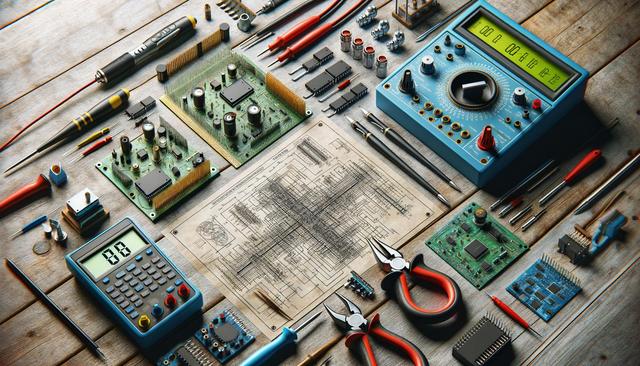The Role of Tile Installers in Modern Construction
Tile installers are integral to the construction and renovation industry, playing a pivotal role in both residential and commercial projects. Their expertise in laying tiles not only enhances the aesthetic appeal of a space but also contributes to its functionality and durability. Tiles are a popular choice for flooring, walls, and countertops due to their versatility, ease of maintenance, and long-lasting nature. Tile installers ensure that these materials are applied correctly, maximizing their benefits.
The process of tile installation involves several steps, including surface preparation, layout planning, cutting, and setting the tiles, followed by grouting and finishing. Each step requires precision and skill, as any errors can lead to issues like uneven surfaces or tiles coming loose over time. Professional tile installers are trained to handle a variety of materials such as ceramic, porcelain, stone, and glass, each with its own set of characteristics and installation requirements.
Moreover, tile installers often collaborate with architects, interior designers, and homeowners to select the right type of tile and design that aligns with the overall vision of the project. This collaboration ensures that the final outcome is not only visually appealing but also meets the practical needs of the space. By understanding the role of tile installers, one can appreciate the craftsmanship and expertise that goes into creating beautiful and functional tiled surfaces.
Skills and Qualifications of a Professional Tile Installer
Becoming a proficient tile installer requires a combination of technical skills, experience, and often formal training. Many tile installers start their careers through apprenticeships, where they learn the trade under the guidance of experienced professionals. This hands-on experience is invaluable, as it allows them to develop the skills needed to tackle various challenges that may arise during installation.
Some of the key skills required for a tile installer include:
- Attention to detail: Ensuring precise cuts and alignment for a seamless finish.
- Mathematical ability: Calculating area, angles, and material requirements accurately.
- Problem-solving: Addressing unexpected issues such as uneven surfaces or material shortages.
- Physical stamina: Handling heavy materials and working in various positions for extended periods.
In addition to these skills, many tile installers pursue certifications from recognized industry organizations. These certifications demonstrate a commitment to quality and professionalism, often making certified installers more attractive to potential clients. Furthermore, staying updated on the latest trends and techniques in tile installation is crucial for maintaining a competitive edge in the industry.
Overall, the skills and qualifications of a tile installer are crucial in ensuring high-quality installations that stand the test of time. By choosing a professional with the right expertise, clients can be assured of a successful project outcome.
Choosing the Right Tile Installer for Your Project
Selecting the right tile installer is a critical step in any construction or renovation project. With numerous options available, it can be challenging to determine which professional is the best fit for your needs. However, by considering a few key factors, you can make an informed decision that will lead to a successful installation.
Firstly, evaluate the installer’s experience and portfolio. Reviewing past projects can provide insight into their style, quality of work, and ability to handle projects similar to yours. Additionally, consider their reputation within the industry and among previous clients. Online reviews and testimonials can be valuable resources in assessing an installer’s reliability and professionalism.
Another important aspect is the installer’s communication skills. A good installer should be able to clearly explain the installation process, provide a detailed quote, and keep you updated on the project’s progress. Effective communication ensures that any concerns or changes are addressed promptly, reducing the likelihood of misunderstandings or delays.
Lastly, ensure that the installer is properly licensed and insured. This not only protects you in case of accidents or damages but also indicates that the installer adheres to industry standards and regulations. By taking these factors into account, you can choose a tile installer who will deliver exceptional results and contribute to the success of your project.
Common Challenges Faced by Tile Installers
Tile installation is a meticulous process that presents several challenges, even for experienced professionals. Understanding these challenges can help clients appreciate the complexity of the work and the expertise required to overcome them.
One common challenge is dealing with uneven surfaces. Before installation, the surface must be properly prepared to ensure a smooth and level base. This may involve additional work such as leveling the floor or repairing damaged areas. Failure to address these issues can lead to tiles that are misaligned or prone to cracking.
Another challenge is selecting the right adhesive and grout. Different types of tiles require specific adhesives and grouts to ensure a secure bond and prevent water damage. Tile installers must be knowledgeable about the various products available and choose the most suitable options for each project.
Additionally, cutting tiles to fit around obstacles like pipes, corners, and edges requires precision and skill. Mistakes in cutting can lead to wasted materials and delays. Tile installers often use specialized tools and techniques to achieve accurate cuts and maintain the integrity of the design.
By understanding these challenges, clients can better appreciate the value of hiring a skilled tile installer who can navigate these complexities and deliver a flawless installation.
Trends and Innovations in Tile Installation
The tile installation industry is continually evolving, with new trends and innovations shaping the way tiles are used in modern design. Staying informed about these developments can help clients make informed decisions and achieve cutting-edge results in their projects.
One notable trend is the use of large-format tiles. These tiles create a sleek, seamless look with fewer grout lines, making spaces appear larger and more cohesive. However, installing large-format tiles requires specialized techniques and equipment, as they can be more challenging to handle and align.
Another innovation is the use of digital printing technology in tile design. This allows for highly detailed and customizable patterns, mimicking the appearance of natural materials like wood and stone. Digital printing expands the design possibilities and offers clients more options to personalize their spaces.
Sustainable materials are also gaining popularity in tile installation. Eco-friendly tiles made from recycled materials or sustainable sources appeal to environmentally conscious clients. These tiles not only reduce the environmental impact of a project but also offer unique aesthetic qualities.
By embracing these trends and innovations, tile installers can offer clients modern, stylish, and sustainable solutions that enhance the overall design and functionality of their spaces.



Leave a Reply